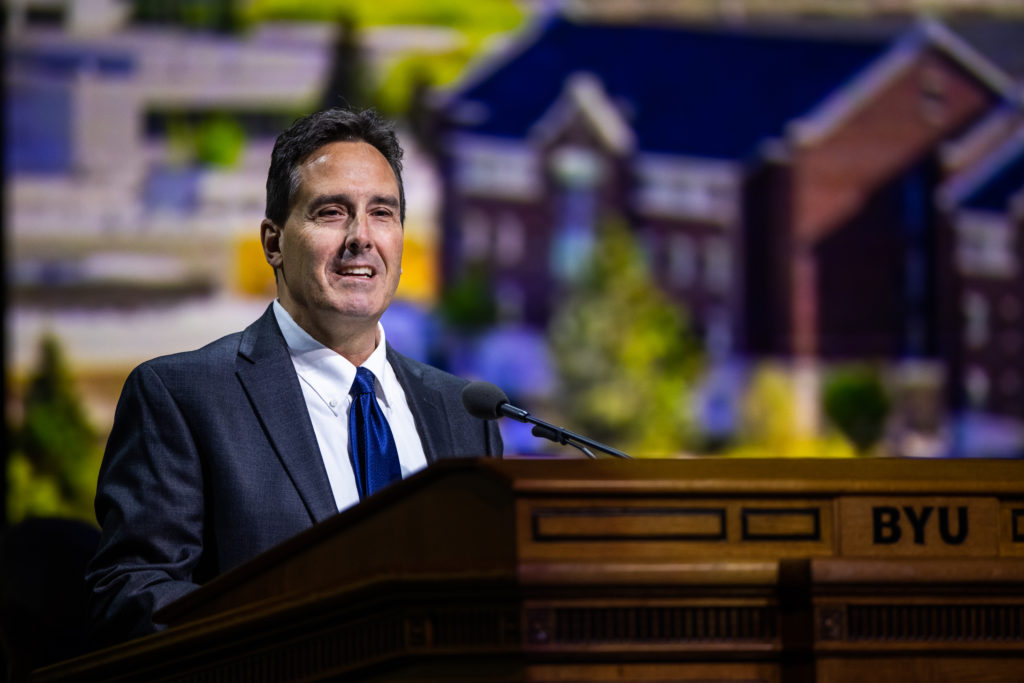
BYU College of Life Sciences professor Rick Jellen testified of God’s love for each of His children and the importance of human diversity in his devotional address on May 11.
Jellen used the Allegory of the Olive Trees to show how God loves each of His children and said it is especially interesting to him as a crop geneticist.
As part of his career, Jellen studies quinoa and oats and their relationship with wild relatives. Although the quinoa and oats differ from the olive tree, there are two shared characteristics. Quinoa and oats were domesticated from invasive weeds and they tend to revert back to their ancestral weedy forms, just like olive trees.
“It isn’t hard to see that olive trees, oats and quinoa can serve as wonderful metaphors that represent people and the importance of human diversity,” Jellen said. “Both the Lord of the Vineyard and the servants see that there is value in the ‘wild’ olive trees — they have the potential to become domesticated or tamed and the refining value of experience because, after all, they are also children of God.”
Jellen shared some experiences he had while researching quinoa in different parts of the world. In 2003 he had seen traditional quinoa production fields in the Bolivian Altiplano where diverse fields were partly infested with the local weedy goosefoot.
He then visited a quinoa field in Colorado where the quinoa production kept failing. Jellen and his colleagues started thinking that a solution for quinoa production in the U.S. could be to cross it with lowland-adapted strains of goosefoot.
In 2004 Jellen and his colleagues started collecting seeds from weedy populations, mostly in Utah and Arizona. “Since then, our collection has expanded to include samples from hundreds of goosefoot populations growing in environments as diverse as the Sonoran and Mojave Deserts, the Gulf of Mexico Coast, the Great Plains, California, and even as far east as the New England Coast,” Jellen said.
This experience along with others in his career taught Jellen the importance of genetic diversity for crop survival, and he parallels that with the importance of human genetic diversity in surviving culturally.
“I believe we need to welcome and nurture the expanding diversity of our multicultural American and international brothers and sisters in all of their ethnicities, cultures, languages and life experiences,” he said.
Jellen said he believes that Heavenly Father expects His children to develop unity and cultivate their diverse talents and abilities so they can be counted among the ‘few servants’ charged with pruning and edifying His vineyard.




